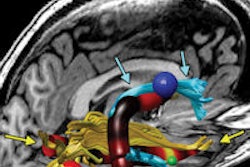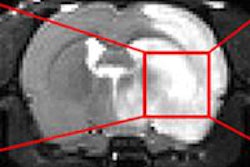Wednesday, December 3 | 10:40 a.m.-10:50 a.m. | SSK09-02 | Room N228
Whole-body diffusion-weighted MRI (DWI-MRI) can outperform CT for detecting and determining the extent of disease in women with recurrent ovarian cancer, according to a study from University Hospital Gasthuisberg in Leuven, Belgium."By improving the detection of tumor recurrence and particularly by improving the assessment of total disease extent, whole-body DWI has the potential to improve noninvasive operability assessment," said lead author and biomedical sciences student Katrijn Michielsen, PhD.
The technique could help "decrease the number of failed surgeries in patients with disease load beyond surgery and decrease the need for invasive surgical staging," she added.
In the study, Michielsen and colleagues compared whole-body DWI with CT for the detection, staging, and operability assessment of 51 women suspected of having recurrent ovarian cancer.
Patients underwent 3-tesla DWI-MRI and CT to detect tumor recurrence on a per-patient basis and disease extent on a per-site basis. The results were correlated with surgical and pathological findings or imaging follow-up for at least six months.
Recurrence was confirmed in 48 of the 51 patients, with whole-body DWI achieving 94% accuracy for detecting recurrence, compared with 78% for CT. The per-site analysis showed significantly higher sensitivity for DWI-MRI versus CT for assessing disease extent in several areas, including the peritoneum, small bowel, and colon mesentery and serosa.
Whole-body DWI-MRI correctly predicted complete cytoreduction in 93% of patients undergoing cytoreductive surgery, compared with 40% for CT.
"Adding the improved capability of whole-body DWI for detecting distant metastases, we believe that whole-body DWI could be a reliable single-step diagnostic imaging tool to help the surgeon's assessment of a patient's suitability toward secondary debulking surgery," Michielsen said.
The group plan to continue the research by investigating its value in the primary care setting.
"We are currently investigating the role of whole-body DWI for operability assessment in ovarian cancer patients prior to treatment and after one and three cycles of neoadjuvant chemotherapy," she said. "We believe in the potential of whole-body DWI to improve surgical mapping of the extent of ovarian cancer and to help the surgeon's assessment of patient suitability toward operability."




















